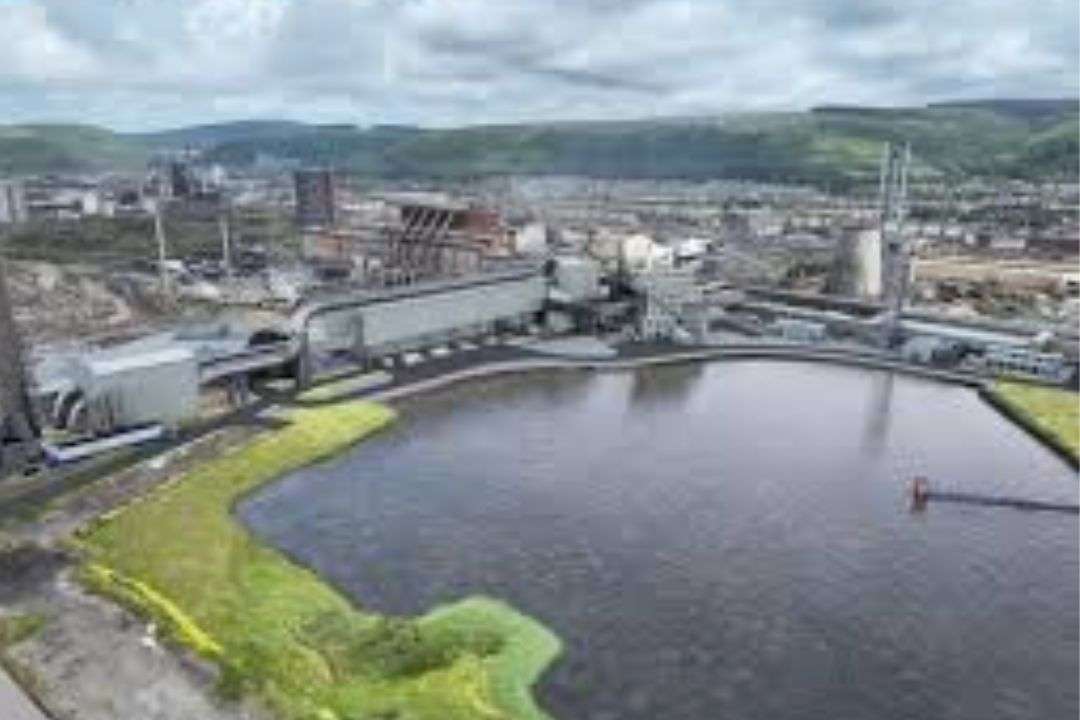In a landmark development for the UK’s steel industry, Tata Steel UK has commenced construction of its £1.25 billion electric arc furnace (EAF) at the Port Talbot steelworks in South Wales. This project represents the most significant investment in UK steelmaking in decades and marks a pivotal moment in the nation’s journey toward greener, more sustainable industrial practices.
The expansive new facility is being delivered by Sir Robert McAlpine and will feature a state-of-the-art electric arc furnace complex, a fume and dust treatment plant, and a dedicated water treatment facility. The electric arc furnace will replace the blast furnaces that were decommissioned at the site in 2024. Unlike traditional blast furnaces that rely on coal, the EAF will primarily melt scrap steel, with additional purer metallic forms added to achieve high-grade specialist steel. This modern method of production is expected to cut carbon emissions by up to 85 percent, reinforcing the UK’s industrial decarbonization goals.
The groundbreaking ceremony was held today at the Port Talbot site and was attended by Tata Group Chairman Natarajan Chandrasekaran, Tata Steel CEO and MD TV Narendran, and Tata Steel UK CEO Rajesh Nair, alongside senior ministers from the UK government. Their collective presence highlighted the strategic importance of this transformation, not just for Tata Steel, but for the entire British manufacturing landscape. Speaking at the event, Natarajan Chandrasekaran remarked that this historic investment not only secures the future of steelmaking in the UK but also accelerates the group’s mission of building a sustainable and circular manufacturing ecosystem.
This transformation of the Port Talbot facility is a bold step toward modernizing the UK’s steel sector and sets a benchmark for industrial decarbonization worldwide. Tata Steel’s transition to electric arc furnace technology reflects a broader global trend where steelmakers are increasingly embracing recycled materials and cleaner energy sources. Once operational, the new facility will not only significantly reduce environmental impact but also help safeguard thousands of jobs across South Wales and other parts of the UK.
Supported by a £500 million grant from the UK government, the project reflects a strong public-private partnership aimed at strengthening domestic manufacturing capabilities. The Port Talbot plant, which has been a cornerstone of British industry for over a century, is now poised to become a flagship model for green steel production and industrial renewal. As construction begins on what will become the UK’s largest low-emission steel facility, Tata Steel’s bold investment reaffirms its commitment to innovation, sustainability, and the long-term future of British manufacturing.
Tata Steel Group, recognized globally as one of the world’s most ethical companies, stands among the top steel producers with an annual crude steel capacity of 34 million tonnes. With a strong global footprint and a consolidated turnover of approximately US$27.7 billion in FY 2023–24, Tata Steel operates across numerous international markets. The company is committed to sustainability, with Tata Steel UK aiming for net-zero steel production by 2045 and targeting a 30% reduction in CO₂ emissions by 2030. In line with this vision, ironmaking at the Port Talbot site was ceased in October 2024, with steelmaking temporarily paused pending the construction of a 3.2 Mtpa Electric Arc Furnace, expected to be operational by late 2027 or early 2028.
During this transition, the company is importing slab and hot rolled coil to maintain supply to manufacturing and distribution sites across the UK, Europe, and the Middle East, including operations in Wales, England, Northern Ireland, Norway, Sweden, France, Germany, and the UAE. In 2024, Tata Steel UK initiated a major restructuring that will streamline its workforce to around 5,000 direct employees, continuing to serve high-performance sectors such as construction, automotive, engineering, and packaging. As one of the most geographically diversified steel producers, Tata Steel maintains a broad global network and remains focused on delivering high-quality steel products while advancing its sustainability goals.








